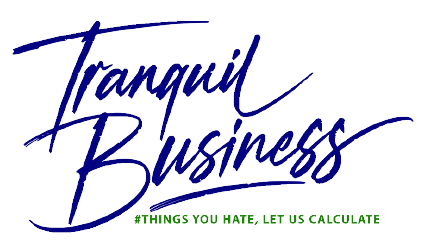Tips for Better Tax Filing & Planning Strategy
Taxes are complicated. There are many different types of taxes you may need to pay, and each type requires its own strategy. If you're not sure what your tax situation is, or if you've never filed before, here are few tips for a better tax filing and planning strategy.

Check your Taxes for last year
Before tax filing, check your taxes from last year to make certain that everything has been reported properly. You may also want to review your 1099s and other income documents to see if anything looks suspicious. If there are issues, you will need to contact the company issuing the information. If you are a small business, contact any bookkeeping services provider as having a bookkeeper is more beneficial than full accountant for these types of businesses.
Find what you need for your investments
The organization of your financials is important. You should separate out your interest and dividend categories. If you have all of your income statements available from all of your investment accounts, it will be easy to find what you need for tax filing. Quarterly or monthly statements may contain all the information you need, but it doesn’t hurt to keep your annual statements in a file folder for easy access.


Do Charitable donations
If you are donating money to charity, you can deduct the full amount of your contribution. If you itemize, you can deduct the fair market value (FMV) of any donated property.
However, if you don’t itemize your deductions, then you can only deduct the portion of your donation that exceeds 2% of your adjusted gross income.
Donations to charities are not always tax deductible. You will need to file Form 1040A or 1040EZ if you want to claim a deduction for any donation. If you itemize deductions, then you will need to itemize your deductions on Schedule A.
Add Medical Expenses.
You can deduct the cost of traveling to and from medical appointments. If you pay out-of-pocket for laser eye surgery, dentistry, or other medically necessary services, you can also deduct those costs. Keep track of all of your medical expenses throughout the calendar year, either by writing them down or using an app like mint.com or quickbooks self employed. Once you get your taxes done, you’re ready to start saving again.


Keep a track of your higher studies
You should consult with a tax professional while tax filing about deductions related to higher education. You may be able to claim certain expenses if you’re enrolled full-time at college, including tuition, fees, books, supplies, and equipment. If you’re not enrolled full-time, you may still be able to deduct some of those costs.
Home loan tax benefits
Interest and principal paid on a housing loan can be deducted from your taxable income, provided you meet certain conditions. You must file an Income Tax Return and claim the deduction within three years after the end of the year in which the interest and principal were paid. If you opt for the old tax regime, you will not be eligible for any deductions on interest and principal payments made on housing loans.


Health Insurance Tax Deductions
Healthcare is an important aspect of life. For many families, healthcare costs can be a significant financial burden. Health insurance helps cover the cost of unexpected medical bills. If you are eligible for government assistance programs like Medicare, Medicaid, CHIP, etc., you may qualify for additional discounts on your premiums. You may also be eligible for tax breaks through the Affordable Care Act.
Here are some more income tax savings tips.
The above-mentioned deductions can be claimed to reduce your tax liabilities. So, go for tax filing and planning services now.
